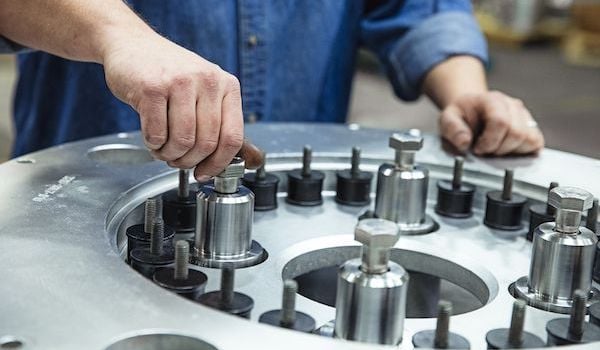Centrifuge care and maintenance isn't something that comes naturally to most. Instead, it’s a skill that takes time to develop. I've been working with centrifuge equipment for decades, and I’ve worked with countless individuals who needed training on the basics of centrifuge service and maintenance because if you don’t know, you don’t know. So if you’re new to centrifuge equipment or if you’re just looking for a refresher, I've prepared the following list of ways anyone can increase their proficiency with this equipment.
How to Improve Centrifuge Proficiency
1. Learn Proper CIP
Although it’s common to be a bit intimidated by these large, powerful machines, centrifuges really are quite simple in function and needs. One thing these machines require is a proper CIP (clean in place) procedure. Every centrifuge — especially those used to process food and beverage — requires attention to cleaning.
While I have no doubt your facility has a CIP procedure for centrifuges, it’s worth checking to see how effective it is. Some common issues with CIP effectiveness have to do with the length of the pre-soak and the caustic wash cycle. If these two steps are being rushed, it’s likely that the equipment is not receiving proper cleaning.
2. Know Your Flow Rate
What is flow rate? Flow rate refers to the rate at which your material flows through the centrifuge. Each separator is rated by the pounds per hour it can process, but if your process follows a different standard of measurement, you can convert your flow rate here.
If your actual flow rate is lower than the machine’s rating, it can be an indicator that something isn’t functioning properly. Alternatively, if your centrifuge is processing at its optimal flow rate but there is an issue with the final product’s quality or density, you have an opportunity to improve your process.
3. Understand Your Process
Material input and output provide a lot of insight into the proficiency of your centrifuge. All of the different materials that enter and exit the separator tell the story of how your equipment is operating. We created a Process Application to help facilities understand how issues with capacity, efficiency, and production quality all tie back to their process.
4. Set a Maintenance Schedule
Like any equipment, centrifuges require maintenance. Approximately every six months, they require a minor service, which maintains the top end of the machine. And approximately every year, centrifuges require a major service, which maintains both the top end and bottom end of the machine.
While some facilities have their internal maintenance department handle minor services, it’s important to be certain that they are capable of providing the level of service and attention to detail the centrifuge requires. The major service, which is more complex and time-intensive, is typically handled through a dedicated centrifuge service provider.
5. Consider Training or Consulting
As I mentioned, some people take more easily to centrifuge equipment than others, but the knowledge and capabilities you need to effectively operate and maintain centrifuges can be learned with a little time and effort. Even machines that seem highly complex and confusing typically only need a bit of attention to obtain and sustain optimal operation.
At Separators, we offer centrifuge training and consulting services, which will bring you and your team up to speed on centrifuge equipment. Training can also take place at your facility, with your equipment.
If you need anything or would like to get in touch with one of our centrifuge experts, please reach out today.

